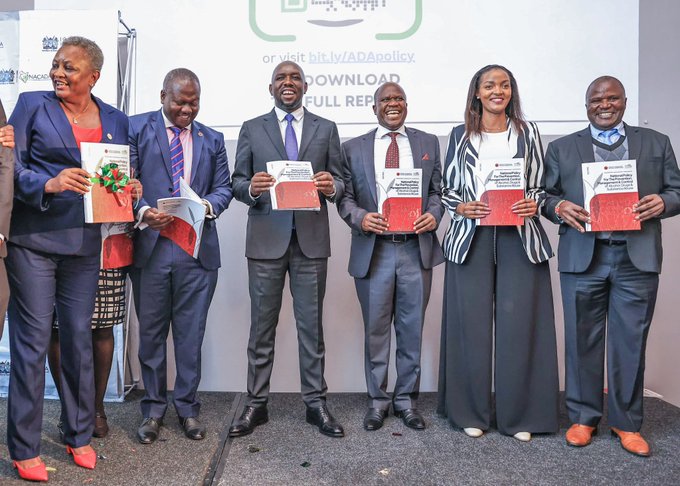NAIROBI, Kenya – Kenyans face a major shift in how and where they access alcohol after the government on Wednesday rolled out a new national policy aimed at curbing alcohol and substance abuse across the country.
The National Policy for the Prevention, Management and Control of Alcohol and Substance Use, launched by the government and the National Authority for the Campaign Against Alcohol and Drug Abuse (NACADA), outlines far-reaching measures to limit the availability, advertising, and consumption of alcohol and related products.
Where alcohol can no longer be sold
Under the new guidelines, alcohol and cigarettes will be banned from sale at any event where children are present, including sporting and entertainment events, art and music festivals, and school competitions.
The prohibition extends to a wide range of public areas, including:
- Public beaches and parks
- Amusement and recreational facilities
- Medical facilities
- Sports facilities
- Bus parks, petrol stations, ferry piers, railway and train stations, and along highways
Additionally, hawkers and vending machines will no longer be allowed to sell alcohol.
Retailers are also affected, as supermarkets, toy shops, restaurants, and residential premises will be barred from stocking or distributing alcohol.
Free alcohol samples and discounted promotional offers at these locations will also be banned.
Drug and substance abuse is compromising our public health, robbing the future of our youth, breaking families, fueling crime and tearing our communities apart.Delighted to preside over the launch of the first-ever National Policy on the Prevention, Management, and Control of
New advertising restrictions
In an overhaul of advertising norms, the policy bans the use of sports stars, celebrities, influencers, and media personalities from endorsing alcoholic beverages, drugs, or substances.
Only individuals aged 25 and above will be permitted to appear in alcohol-related promotions.
Other advertising limitations include:
- No alcohol commercials during watershed hours (5 a.m. to 10 p.m.) on TV
- No outdoor alcohol ads within 300 metres of any educational institution
- No branding or sponsorship of sports teams, leagues, or tournaments by alcohol manufacturers
- No messaging that portrays alcohol use as trendy, desirable, or linked to performance-enhancing activities such as sports or driving
The policy also bans “lifestyle advertising” and prohibits any marketing that praises high alcohol content as a beverage’s positive feature.
Media and entertainment also under the spotlight
The production and distribution of films, music, plays, or any audiovisual content that portray alcohol or drug use in a positive light will now be outlawed in both electronic and print media.
Additionally, prize-based competitions or promotions that encourage high consumption to win rewards will be banned.
NACADA says the updated policy is a response to the surging potency and variety of substances in the Kenyan market, alongside the growing menace of illicit drug trafficking.
“All stakeholders must act, leveraging the provisions of this policy to forge strong, synchronised partnerships with the government and with one another,” the agency noted in the official document.
The sweeping reforms come amid rising public health concerns and follow a growing global trend of stricter alcohol regulation, especially to protect youth and vulnerable populations.
If fully implemented, the policy could reshape Kenya’s alcohol landscape—from the bar counter to the billboard.







